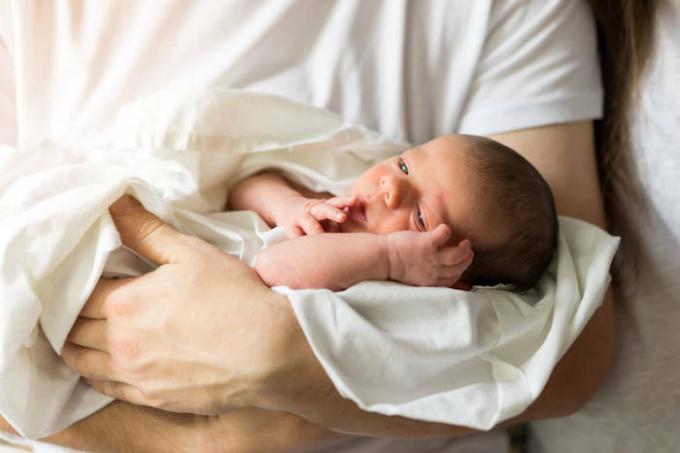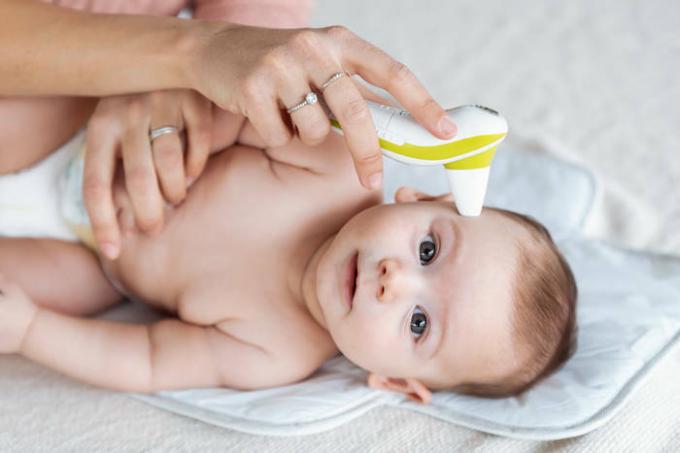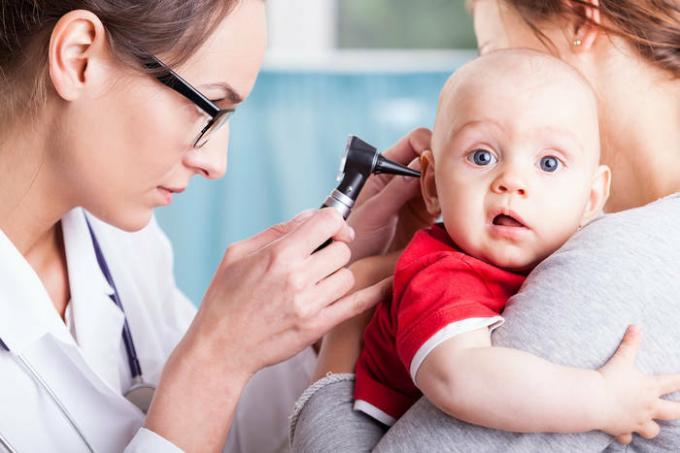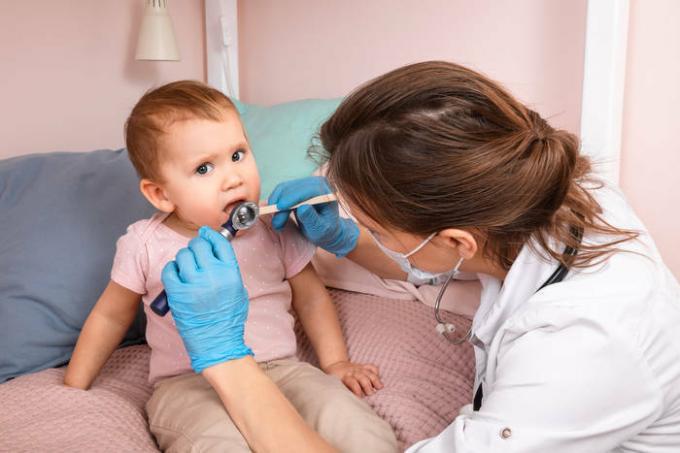From birth to one year, the child must undergo six examinations of narrow doctors. Which doctors need to show the baby, and what they are obliged to check at the appointment
Few people like to go to hospitals unnecessarily. And even more so, to take children there. Therefore, mothers often neglect doctors' consultations if the child is visually in order. However, routine examinations of a child are not at all an annoying obligation. Regular medical examinations allow even the smallest deviations or developmental disorders to be detected at an early stage. And accordingly, start the necessary therapy earlier. Doctors advise not to forget about medical examinations even in quarantine conditions, and try to pass them to the maximum in compliance with safety measures. Read about when and what doctors need to show a child from birth to one year in our material.
Newborn
The baby receives his first examination in the hospital. Immediately at birth, the child should be examined by a pediatrician: he measures the height and
weight, assesses the condition of the newborn according to the Apgar scale (a system for rapid assessment of the condition of the newborn in the first minutes of life). On the 3-4th day after birth (in premature babies, usually on the 5-7th day), the child is given the first screening in his life, which is called neonatal or newborn screening. To do this, a few drops of blood will be taken from the child's heel and sent for examination.
Newborn needs neonatal screening / istockphoto.com
Newborn screening is an analysis that helps identify serious genetic diseases at an early stage. In our country, in state maternity hospitals, it is considered mandatory to check for such diseases: cystic fibrosis, congenital hypothyroidism, phenylketonuria, adrenogenital syndrome. In private maternity hospitals, mothers most often offer extended screening, which can include the diagnosis of 10-30 different diseases.
If you are planning have a baby at home, be sure to think about who will examine the baby after birth. Typically, at home births, this procedure is performed by a midwife, family doctor (if present) or a professional doula. Also find out where the neonatal screening can be done for your baby. Your pediatrician or family doctor can refer you for this examination.
A hearing test (audiological screening) is also considered a mandatory examination of a newborn. In the maternity hospital, it is carried out by a doctor using a special device. If the baby is born at home, you must do the first hearing test yourself. On the fifth day of the child's life, clap your hands lightly, first at the right ear and then at the left ear. If there is no reaction, or it is only on one side, this is a reason to consult a doctor. Unresolved hearing problems can affect the harmonious development of the baby.
After the mother and baby are finally at home, the child must be examined by a pediatrician or family doctor. Such an examination is carried out twice: on the 7th and 14th day from the moment of birth. You do not need to go to the hospital for this: according to the protocol, the doctor comes to your home. The doctor again measures the child's height and weight, checks his general well-being and advises the mother on caring for the baby.
0 to 1 year
In the first year of life, the child is examined by a pediatrician every month. But besides this, the baby will need to go through as many as five routine examinations by narrow specialists. Believe me, this is not a lot for a baby. The baby develops at a rapid pace, and each stage of development must, to one degree or another, correspond to the age norm.

Four doctors must see the baby per month / istockphoto.com
1 month
The child should be examined by a pediatrician, pediatric surgeon, ophthalmologist, and neurologist. The pediatrician at this examination is not limited to height and weight. He must measure Head circumference and chest, check the size and condition of the fontanelle and BCG vaccinations (if you did it in the hospital). The surgeon assesses the structure of the musculoskeletal system, looks if the child has a hernia or dislocation. The neurologist checks the first reflexes, looks at the neuropsychic development of the baby. The ophthalmologist monitors whether the child focuses his gaze correctly, and in some cases can check the condition of the eye muscles and fundus. Before visiting the doctors, it is highly advisable to have an ultrasound scan (of the heart, abdomen, hip joints and brain).
3 months
Examination by a pediatrician, orthopedic traumatologist and neurologist. Pediatrician control is standard: height, weight, fontanelle, head and chest circumference. The podiatrist checks for hip dysplasia. It is very important to detect this disease at an early stage. A neurologist evaluates the child's psychomotor development. At this age, the child needs to undergo a urine and blood test before visiting a doctor. If at birth and in the first month of life you did not perform an audiological screening (limited to a home test), at three months it is high time to check your child's hearing with a special device.

At three months old baby needs audiological screening / istockphoto.com
6 months
Consultation with a pediatrician, neurologist, pediatric surgeon. At this age, in addition to the standard examination procedure, the pediatrician also checks whether the baby has first teeth. From six months, the first complementary foods are introduced, according to which the doctor gives his recommendations, based on the dynamics of weight gain child: children with a good weight gain are recommended to start with vegetables, but thin babies are recommended the first porridge. If necessary, the pediatrician can refer the child to specialized specialists. Again, before the scheduled examination, we hand over a blood and urine test.
9 months
Examination by a pediatrician and dentist. After the standard examination procedure, the pediatrician will refer the child to the pediatric dentist. The dentist checks for pathologies of the frenum, the development of the tongue, the condition of the palate and gums. From about this age, the child already needs to brush his teeth (if they appear) or carry out regular oral hygiene. The dentist gives parents advice on what products should be chosen to move behind the mouth, and how to do it correctly so as not to injure delicate gums.

The first consultation with the dentist should be received at 9 months / istockphoto.com
12 months
The child should be shown to a pediatrician, ENT, pediatric surgeon, ophthalmologist, dentist and child psychiatrist. After the first birthday of the child, the most comprehensive examination by specialists awaits. Therefore, you need to prepare for visiting the clinic. If, for some reason, you did not take routine tests before, now you will definitely need to do a general analysis of urine and blood, as well as a blood test for glucose. An ultrasound of the heart, brain, abdomen and hip joints is required if you have not done it before. Also, the first ECG (electrocardiography) is done to the child at one year old.
The ENT at the reception should listen to the child, examine his ears, throat and nose. The pediatric surgeon monitors the development of the skeleton and examines the tummy to exclude a hernia (for boys at this age, an examination of the external genital organs is mandatory). Psychiatrist checks psychomotor development child for compliance with age standards. The ophthalmologist looks at the visual acuity and corrects possible deviations (for example, in case of strabismus at this age, the child may be prescribed glasses). The dentist in a year controls the number of teeth and checks whether the baby's bite is formed correctly.
You will also be interested in reading:
8 doctors who definitely need to show a child under one year old
7 signs of a poor pediatrician
Pediatrician advises: 3 unexpected life hacks to secure a home for a child


